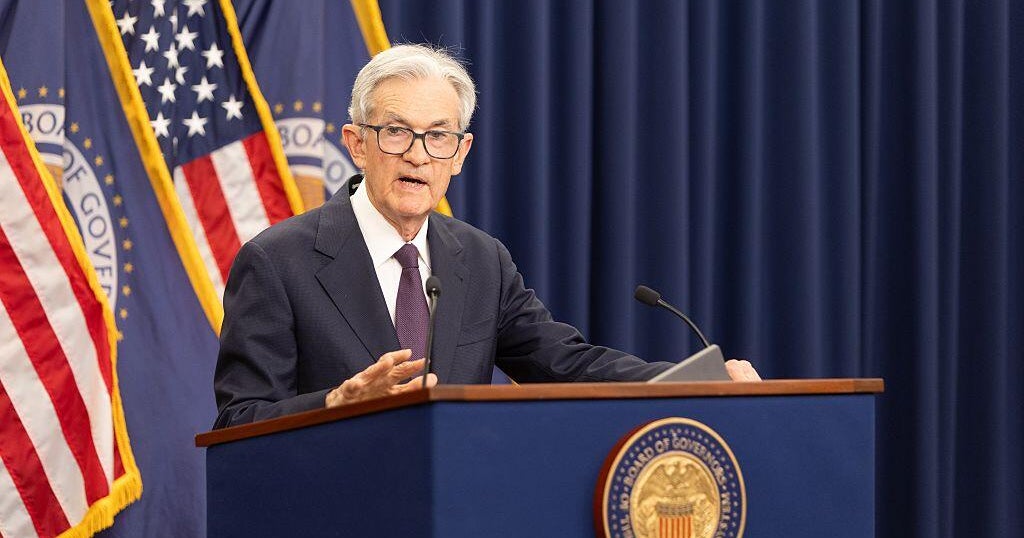In a notable escalation of tensions, President Trump has publicly suggested the possibility of firing Federal Reserve Chair Jerome Powell. Expressing frustration over Powell’s recent decision to maintain interest rates, Trump criticized the central bank leader, labeling him as a “Total and Complete Moron.” This statement further emphasizes Trump’s longstanding dissatisfaction with the Federal Reserve’s approach to interest rates, which plays a crucial role in the economic landscape of the United States. Speculation about pushing Powell out of his position adds a layer of intrigue as it raises legal questions regarding the president’s authority over the central bank.
| Article Subheadings |
|---|
| 1) President’s Frustration with Powell |
| 2) Legal Implications of Firing a Fed Chair |
| 3) Economic Impact of Interest Rate Decisions |
| 4) A Historical Perspective on Trump’s Critique |
| 5) The Fed’s Response and Market Reactions |
President’s Frustration with Powell
President Trump’s criticisms of Federal Reserve Chair Jerome Powell have reached a boiling point, with Trump branding the chair a “Total and Complete Moron” amid ongoing frustration over interest rate policies. Trump has expressed his discontent repeatedly, particularly regarding Powell’s reluctance to expedite plans for lowering interest rates, which have remained steady despite the president’s calls for action. In a recent social media post, Trump raised the prospect of dismissing Powell, stating, “Maybe, just maybe, I’ll have to change my mind about firing him?” This marks a significant rhetorical shift, as it is now apparent that Trump is more willing to contemplate drastic actions against Powell.
Legal Implications of Firing a Fed Chair
The potential for removing Powell from his position poses serious legal challenges. Under federal law, members of the Federal Reserve’s Board of Governors, including the chair, can only be dismissed for cause—a stipulation designed to maintain the independence of the central bank from political pressures. This was emphasized by a recent Supreme Court ruling that categorized the Federal Reserve as a “uniquely structured, quasi-private entity,” thus shielding it from arbitrary dismissal. The implications of such a move could lead to legal disputes and further complicate the relationship between the White House and the Federal Reserve.
Economic Impact of Interest Rate Decisions
The Federal Reserve’s decisions on interest rates profoundly influence economic conditions in the United States. By keeping rates stable, the Fed aims to foster a balanced economy without triggering rapid inflation. Trump argues that maintaining high rates could curtail growth and increase borrowing costs for Americans. However, Federal officials, including Powell, have cautioned against rapid rate cuts, as doing so could risk igniting inflation—a concern that has persisted despite recent downward trends. The delicate balancing act between stimulating growth and controlling inflation poses a considerable challenge for monetary policymakers.
A Historical Perspective on Trump’s Critique
Trump’s recent attacks mirror his previous tenure’s sentiments, particularly during a period in 2018 when he criticized Powell for increasing interest rates. At that time, Trump argued that such policies were detrimental to economic stability. However, he later praised the Fed for its actions during the COVID-19 pandemic, recognizing their role in slashing rates to support struggling economies. This seemingly ambivalent approach to the Fed suggests that Trump’s criticism is intricately tied to the economic landscape and personal perceptions of how monetary policies align with his administration’s objectives.
The Fed’s Response and Market Reactions
The Federal Reserve has largely remained reticent in response to Trump’s vitriolic comments. The Fed’s refusal to comment publicly on Trump’s criticisms exemplifies its commitment to operating independently from political influences. Analysts are closely watching market reactions to this evolving situation; any indication of instability or uncertainty generated by potential changes in Fed leadership could influence investor confidence and market dynamics. Trump’s continuous criticism, particularly labeling Powell as a “dumb guy” and pushing for immediate action, leads to speculation about how both monetary policy and economic engagement will unfold moving forward.
| No. | Key Points |
|---|---|
| 1 | Trump has publicly criticized Powell, questioning his interest rate decisions. |
| 2 | Legal implications exist surrounding the potential firing of a Fed Chair. |
| 3 | Interest rate decisions affect economic growth and consumer borrowing. |
| 4 | Trump’s criticisms reflect a historical pattern in his attitudes toward the Fed. |
| 5 | The Fed maintains its independent stance despite political pressure. |
Summary
The ongoing tensions between President Trump and Federal Reserve Chair Jerome Powell have culminated in significant public spats over interest rate policies. With Trump raising the prospect of potentially firing Powell, legal complexities and the implications for America’s economic landscape have drawn considerable attention. As the political and economic intricacies unfold, the impact on monetary policy and investor confidence continues to be a focal point for many stakeholders.
Frequently Asked Questions
Question: Why is Trump criticizing Jerome Powell?
Trump’s criticism of Powell stems from the Fed’s decision to keep interest rates steady, which he believes hampers economic growth and increases borrowing costs.
Question: Can the president fire the Federal Reserve Chair?
While the president can theoretically suggest dismissal, legal frameworks stipulate that the Fed chair can only be fired “for cause,” making such an action legally contentious.
Question: What are the potential impacts of interest rate decisions?
Interest rate decisions directly influence economic growth, inflation rates, and borrowing costs, thereby affecting consumer behavior and overall market stability.


